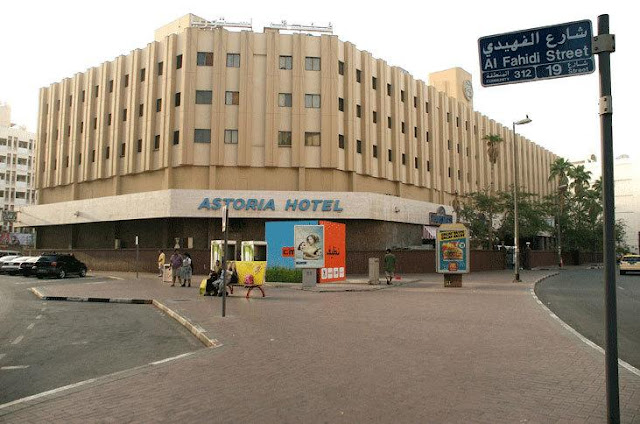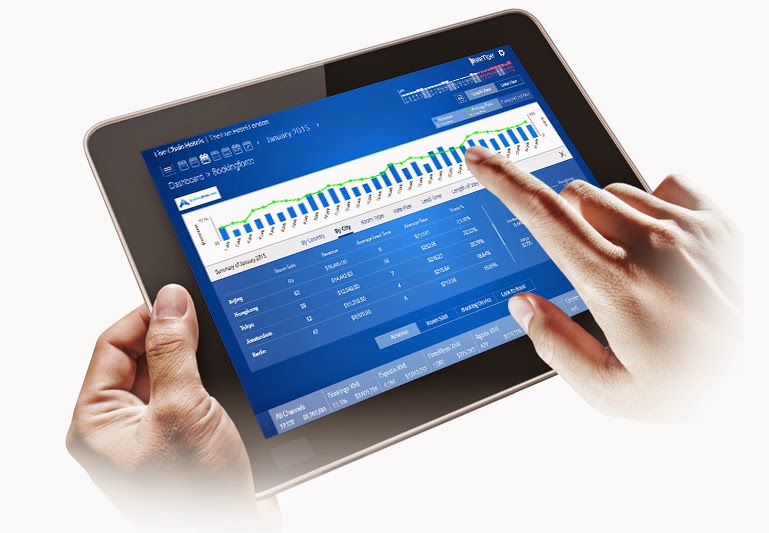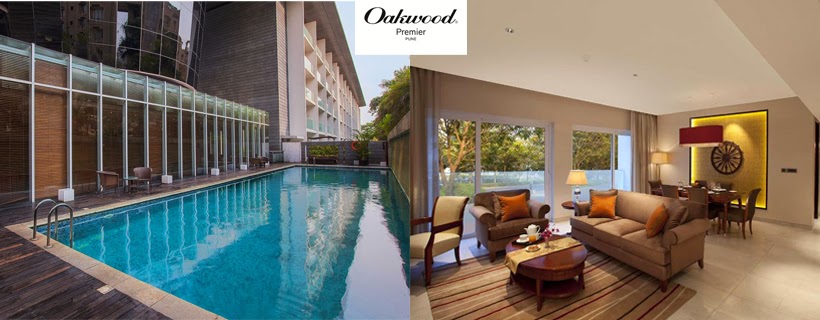Astoria Hotel is a three-star property with over 100 rooms. RateTiger’s real-time connectivity with over 300 online sales channels has facilitated the property to connect to the better producing OTAs, resulting in an increase in online business share from 5% to 38% over 3 years’ period.
Booking.com fires away strict rate parity: What it means for hoteliers – Part II
Booking.com fires away strict rate parity: What it means for hoteliers
Oakwood selects RateTiger for channel management and competitor intelligence
Citybaseapartments.com uses RateTiger Corp for optimizing rate strategy
 “As an online booking agent specifically tailored towards serviced apartments, it’s imperative that our customers can trust that we are offering them the best rates possible.” said Louise Rogerson, Supplier Relations Team Manager, Citybase Apartments. Through RateTiger Corp, Citybase Apartment will be able to automatically capture and analyse rate parameter data and can improve brand position on all connected channels.
“As an online booking agent specifically tailored towards serviced apartments, it’s imperative that our customers can trust that we are offering them the best rates possible.” said Louise Rogerson, Supplier Relations Team Manager, Citybase Apartments. Through RateTiger Corp, Citybase Apartment will be able to automatically capture and analyse rate parameter data and can improve brand position on all connected channels.Three Strategies to Boost Direct Bookings and Still Appease OTAs
Travelocity, Hotwire, Priceline and other travel deal sites require hotels to pay significant commission fees in exchange for bookings. While this is an important revenue source for the industry, some hotels have experienced an increasing percentage of their business moving to these channels (effectively reducing the amount of undocked reservations they receive).
One primary reason for this trend is the assumption that these online travel agencies (OTAs) will always have the better deal. While rate parity clauses prevent hotels from publicly advertising rates for less than what’s on the OTA, there are strategies property owners can use to entice more customers to book direct.
Recently, my company interviewed several hotel management software and hotel marketing experts to help brainstorm several ways hotels can drive direct bookings. Here’s what they suggested:
Blog About Great Deals and Share The Posts
Your blog is a great avenue for both reminding potential customers why that moment is a great time to travel, and for pitching them on deals relevant to whatever event or season might be happening. You can send these articles to your email list, as well as optimize them with keywords that have high search traffic. This latter strategy can drive more organic traffic to your website. For example, “SXSW hotels” receives 170 searches per month, so Austin-area hotels could write blogs optimized for that keyword so they rank when people search for that term in Google. Here’s an example of a blog post advertising Spring time events in the area around The Sanctuary Beach Resort in Monterey Bay:
Hook Viewers with Strategic Design
Often, travelers shopping on OTAs visit the hotel’s website to learn more about the accommodations offered. This is your chance to capture those site visitors and stop them from going back to the OTA. This takes smart web design.
First off, make it as clear and hassle-free as possible to book. Provide “book now” buttons on every page that link to your hotel booking automation system. These buttons should be located at the top of the page so they are the first thing customers see. Also, include call-to-actions on every page that encourages visitors to “sign up for our email list for exclusive discounts,” or “Like on us on Facebook for special deals.”
Also, many customers assume they will get the “least desirable rooms” if they book on an OTA. So you need to show them what your best rooms look like immediately. This could convince them it’s worth splurging on your room rather than an OTA room. Make sure your most attractive rooms, views and balconies (if you have them) are front and center (like on your homepage). These images need to be professionally taken, high quality and show the best parts of your most desired rooms – soaking tubs, incredible views, large windows and so on.
By implementing these tips, savvy hotel managers can drive customers to their own website without upsetting their OTA and still reap the clear benefits of using OTAs. Rather than a battle, it can be a win for everyone involved.
Interact with Customers on Review Sites
Many times when customers use OTAs, they get a list of five or so properties in a similar price range. In addition to visiting the hotel websites, they might also go to something like Yelp or TripAdvisor. This presents another opportunity to draw customers to your own site, rather than having them go back to the OTA to book.
When customers post reviews about your hotel, you need to try your best to answer as many as possible, where they’re positive or negative. Review, a web-based tool by eRevMax, makes monitoring these reviews as easy as checking emails. The application scours all hotel review sites and collects every mention of your hotel in one location. It also lets you respond directly to guests without ever leaving its interface, cutting down time spent hopping from one review site to another for an effective hotel guest review management process.
Besides just viewing and responding to comments, the tool gives you a deeper understanding of your customers. You can see exactly what’s working and what’s not, trends among customers, and also how your hotel stacks up compared to your competitors.
How do you increase direct bookings? Let us know!
Alan S. Horowitz contributed to this report.
Ashley Verrill is an analyst with Software Advice. She has spent the last six years reporting and writing business news and strategy features. Her work has been featured or cited in Inc., Forbes, Business Insider, GigaOM, CIO.com, Yahoo News, the Upstart Business Journal, the Austin Business Journal and the North Bay Business Journal, among others. She also produces original research-based reports and video content with industry experts and thought leaders.
Chinese hotel chain signs eRevMax for market expansion and revenue growth
 “We chose RateTiger Channel manager as it is considered one of the best online distribution tools in the industry. It helps our Reservations team save valuable time while reducing workload, we can now make all updates directly from the RateTiger dashboard.” said Mr. Louis Cheng, General Manager of Rosedale Hotel Kowloon and Rosedale on the Park. Headquartered in Hong Kong, Rosedale Hotel Group will also be using RateTiger Shopper, the leading price intelligence tool to monitor rate parity across all its channels. This will empower the property with better room rates and price forecasting to generate more revenue.
“We chose RateTiger Channel manager as it is considered one of the best online distribution tools in the industry. It helps our Reservations team save valuable time while reducing workload, we can now make all updates directly from the RateTiger dashboard.” said Mr. Louis Cheng, General Manager of Rosedale Hotel Kowloon and Rosedale on the Park. Headquartered in Hong Kong, Rosedale Hotel Group will also be using RateTiger Shopper, the leading price intelligence tool to monitor rate parity across all its channels. This will empower the property with better room rates and price forecasting to generate more revenue. LifeClass Hotels doubles direct booking with RateTiger
Slovenia-based LifeClass Hotels has successfully utilized the Billboard Effect to increase direct bookings by over 100% with the help of RateTiger, the integrated channel manager, pricing data and guest review monitoring tool.
 “RateTiger has certainly made it easy for us to set rates and update all the sales channels very quickly.” said Alen Milosevic, Revenue Manager, LifeClass Hotels & Spa. The 4/5 Star hotel group of six properties has been able to introduce a substantial expansion of its product offerings from one room rate plan for four room types to 16 rate plans for 6 to 7 room types. With the help of RateTiger review the property has been able to monitor guest review on various social channels like TripAdvisor, Facebook yelp etc. this has resulted in 30% revenue growth in 2012.
“RateTiger has certainly made it easy for us to set rates and update all the sales channels very quickly.” said Alen Milosevic, Revenue Manager, LifeClass Hotels & Spa. The 4/5 Star hotel group of six properties has been able to introduce a substantial expansion of its product offerings from one room rate plan for four room types to 16 rate plans for 6 to 7 room types. With the help of RateTiger review the property has been able to monitor guest review on various social channels like TripAdvisor, Facebook yelp etc. this has resulted in 30% revenue growth in 2012.To read the full story, click here.
Newshound: Leonardo continues with RateTiger, Bookings through Multi-channel management, More on Review Express & Hotel price-fixing lawsuit
Leonardo Hotels extends contract with RateTiger for future-proof eDistribution and company expansion
Leonardo Hotels is extending its contract with RateTiger by eRevMax to support the development of the company’s sales and distribution processes. This follows Leonardo Hotels‘ acquisition of 20 properties from the QMH Hotel Germany Group, in one of the biggest deals the European hotel industry has seen in recent years.
http://www.hospitalitynet.org/news/4060480.html
The Paul Hotels Achieves Online Rate Parity
 The award-winning luxury property in India has been selling across 15 online channels and wanted to ensure the same rates were available to customers across all channels. However, managing so many OTAs manually was becoming a challenge, especially when guests were discovering rate inconsistencies. To main group sales sells across global booking portals as well as regional OTAs with the prospect to add more channels the properties chose RateTiger.
The award-winning luxury property in India has been selling across 15 online channels and wanted to ensure the same rates were available to customers across all channels. However, managing so many OTAs manually was becoming a challenge, especially when guests were discovering rate inconsistencies. To main group sales sells across global booking portals as well as regional OTAs with the prospect to add more channels the properties chose RateTiger.







